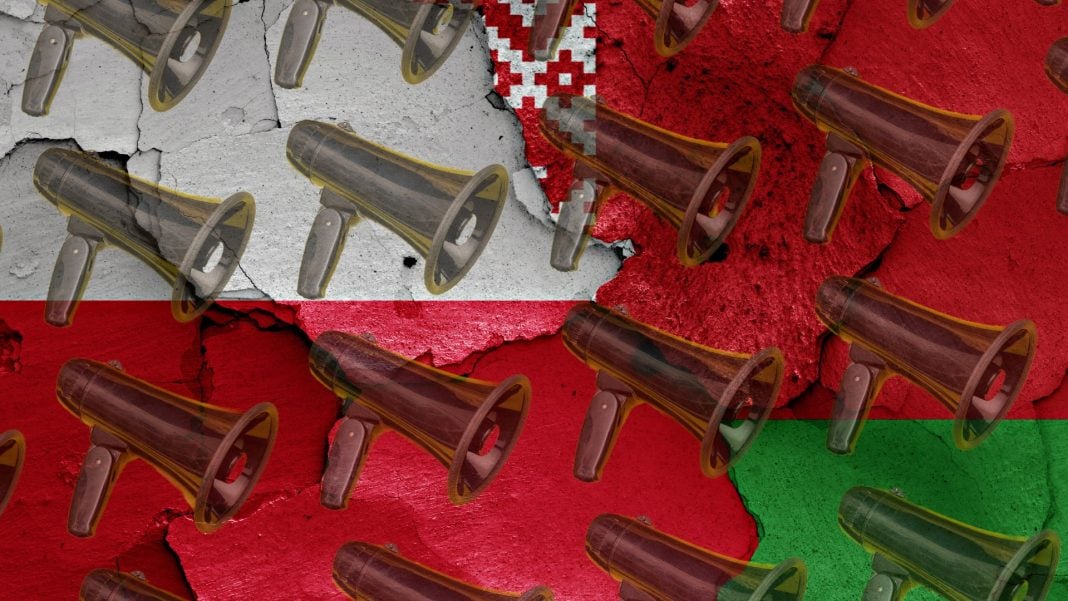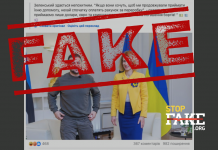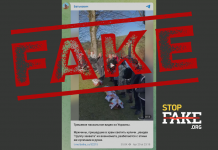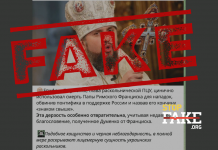The Belarusian authorities, realizing that it is currently impossible to unfreeze official contacts with Poland, have focused on ordinary Poles. To influence them, Polish-language media outlets were created to promote the propagandist narratives of Minsk. The main message is: the people in Poland are good, but the country is unlucky with its politicians.
“99% of Poles understand and, I am sure, support Belarusian policies,” declared Lukashenko confidently in September 2024, while adding that he has no intention of going to attack Poland. The source of these figures was not disclosed to the public. Meanwhile, a research conducted by the Julius Mieroszewski Dialogue Center shows that 88% of Poles have a negative opinion of Lukashenko, and only 3% support him. It is clear that this data is not mentioned in Belarusian propaganda so as not to destroy the myth of the Poles’ great love for Lukashenko.
According to this myth, Polish politicians, who do not take into account the interests of the people, but carry out the will of NATO and the USA, are preventing the development of normal relations between the countries. Until 2023, it was the Duda-Morawiecki regime, now it is the Duda-Tusk regime. The change of government in Poland has not affected official Belarusian-Polish relations in any way, Warsaw does not recognize the leadership in Minsk, supports the democratic forces of Belarus and imposes sanctions as a response for the migration crisis and the arrest of journalist and representative of the Polish minority Andrzej Poczobut. Amid the lack of official political contact, Belarus has shifted its focus to ordinary Poles.
The propaganda aims to create an image of a friendly Belarus for them: “Come, travel, and share your experiences with friends.” To simplify travel for Polish citizens, a visa-free regime was introduced on July 1, 2022. Nearly 100,000 Poles have already taken advantage of the simplified border crossing system. Talking about visa-free travel, propaganda contrasts “peaceful” Minsk with “aggressive” Warsaw, suggesting: “Look, your authorities are building fences on the border, closing checkpoints, while we are ready to welcome you without restrictions and in any numbers.” Belarusian television, currently the main mouthpiece of propaganda, constantly shows reports from the border, where Poles talk about the reasons for traveling to Belarus, thank the Belarusian authorities for the opportunity not to pay for visas and praise the country for being calm, clean, safe and, most importantly, not as scary as they say in the Polish media. Meanwhile, Polish outlets advise against visiting Belarus, citing safety concerns, as every Polish tourist is a potential hostage of the Belarusian regime.
It is clear that it is difficult to convey the “truth” about Belarus to the Poles in Russian, unlike with Lithuanians or Latvians, who generally understand the language. For this reason, in recent years, Belarusian propaganda has actively developed Polish-language content. Even the state news agency BelTA launched a Polish-language version. The main broadcaster of the “truth for Poles” has become the Belarusian State Broadcasting Company. It introduced a fully Polish-language program on its international radio channel. The program’s author is Daniel Mikusek, who in Poland referred to himself as an entrepreneur but, upon arriving in Belarus, reinvented himself as a political analyst. Later, former Polish judge Tomasz Szmydt joined him. Schmidt fled Poland and asked for political asylum in Belarus.
In their radio show, Mikusek and Szmydt discuss current events in Poland, comment on political statements, and criticize the country’s support for Ukraine. On average, these programs attract several thousand views. However, commentators from Poland are often critical of the hosts, frequently expressing contempt and calling them traitors and servants of Lukashenko.
The pro-government Union of Poles in Belarus plays an important role in propaganda. About 300 thousand Poles live in the country, making them the second-largest national minority after Russians. Until 2005, there was a unified Union of Poles, but the authorities rejected the elected leader, put in their own candidate, and caused a split. As a result, two Unions of Poles emerged in Belarus: one pro-government and the other independent. Needless to say that the pro-government Union has never faced issues with the Belarusian authorities. All its initiatives were supported, and any concerns were promptly addressed. The independent Union of Poles did not receive such extensive support, but the authorities tolerated its existence until 2020. After the mass protests that year, which Poland was accused of organizing, the independent Union came under repression: its activities were restricted, its members forced into exile, and its leadership arrested. The Union’s vice-chairman, Andrzej Poczobut, received 8 years in prison and is still behind bars. It is clear that persecution of the Polish minority, closing of Polish schools, demolition of Polish memorials are not exactly the kind of actions that could win the favor of ordinary people in a neighboring country. And here the pro-government Union of Poles became particularly useful for the authorities. Its head Aleksandr Songin was even appointed a member of the Belarusian parliament to demonstrate the importance of the Polish issue in Belarusian domestic politics. He is a frequent guest on the aforementioned Polish program of Belarusian Radio, where he talks about how well Poles live in Belarus, how they support the local government and dream of friendly relations with Poland.
To extend its influence to a less politically engaged segment of Polish society, Belarusian propaganda actively tries to involve well-known public person. There are not many willing ones yet, but nevertheless, they managed to lure actor Jarosław Jakimowicz, best known for his role in the film Young Wolves. He posted a series of complimentary videos about his trip, where he tried to destroy the negative image of Lukashenko’s regime. The cost of this trip for the Belarusian authorities was not disclosed. However, the actor’s reputation took a significant hit, as evidenced by the comments under his posts. Despite all the efforts that Belarusian propaganda invests in creating an attractive image of the regime in the eyes of the average Pole, this endeavor can hardly be called successful at this stage. Poles do not perceive Lukashenko as a friendly politician, and the number of people willing to travel to Belarus under the visa-free regime is declining month by month. The pro-government Union of Poles holds no influence in Poland, unlike the independent Union of Poles. Moreover, Polish citizens who have sided with Lukashenko’s regime are generally seen by their compatriots rather as freaks and are condemned.





